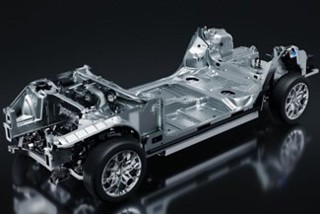Meanwhile, Porsche is set to take total control of Volkswagen after the EU moved closer to scrapping a rule that protects VW from takeover – the so-called Volkswagen Law.
Do acquisitions work? DC has struggled to overcome cultural differences between its German and American operations. Focusing on Chrysler’s losses with an efficiency and quality drive saw executives take their eye off Mercedes, resulting in its own quality problems. Reverting their attention back to Mercedes then saw Chrysler start to suffer again.
It seems DC can’t focus on both at the same time – and that could force the split.
Oddly, General Motors has been mooted as a likely suitor. Odd, because GM has its own problems. And its track record of handling acquired businesses, such as Saab, is not great.
Porsche wants VW. Or, perhaps more accurately, Porsche controlling shareholder Ferdinand Piech wants to regain his control over VW. Porsche already has 27.4%; now Piech has his chance to seize power.
Analysts believe Christian Wulff, premier of Lower Saxony, which is VW’s second biggest shareholder after Porsche, has given up the fight and is preparing to sell.
PSA Peugeot-Citroën, serving the same market – both French – is a solid relationship, although it took a while to get the balance right. Renault-Nissan appeared to get the balance right straight away, but Nissan has since slipped a little. The omens look good, however.
BMW and Rover was a failure, while Ford and GM are struggling to handle all of their brands. Hyundai-Kia, after initially struggling, is enjoying success, particularly in the US and UK.
To make an acquisition work, there must be clear synergies. Those come from companies that serve similar markets, which allows crossover of parts, R&D and assembly. Premium Daimler and mass volume Chrysler were always going to struggle in this context.
Most carmakers need to forget acquisitions, and consider product joint ventures and tie ups. Taking this approach will bear the best fruit.

















Login to comment
Comments
No comments have been made yet.